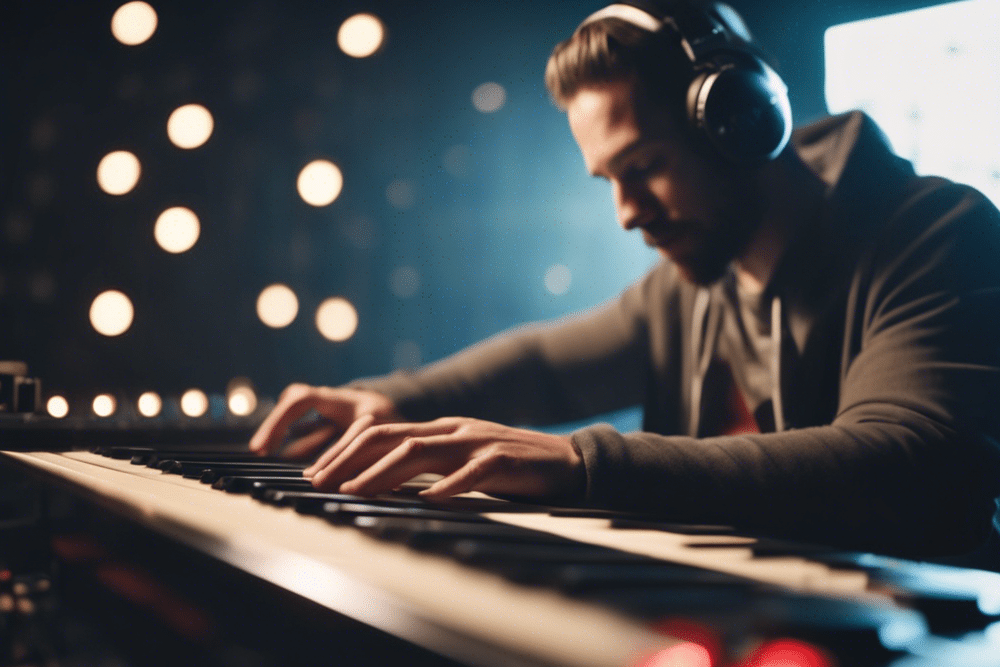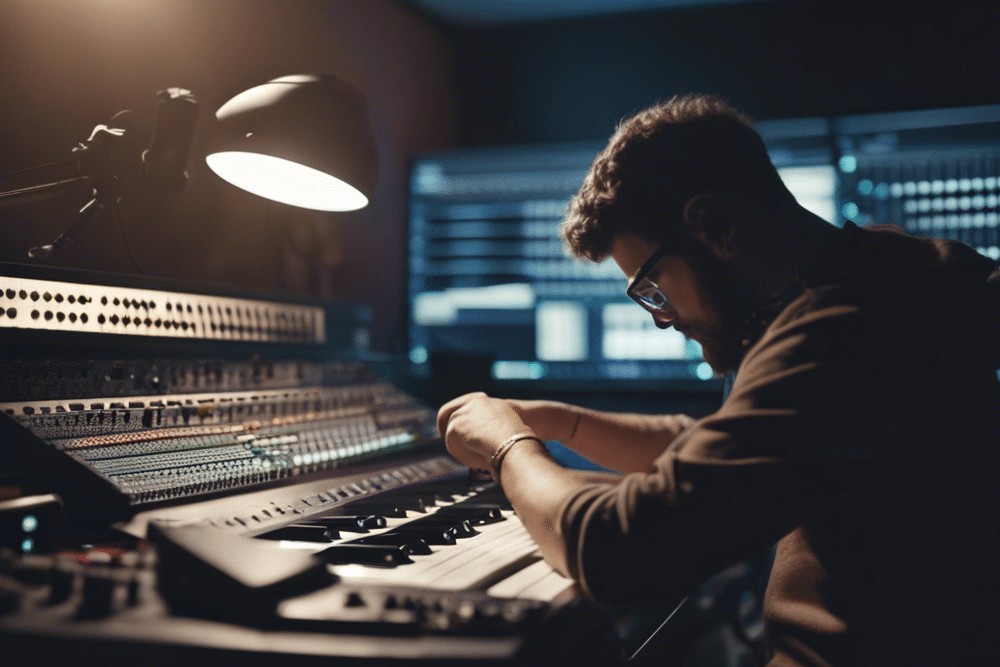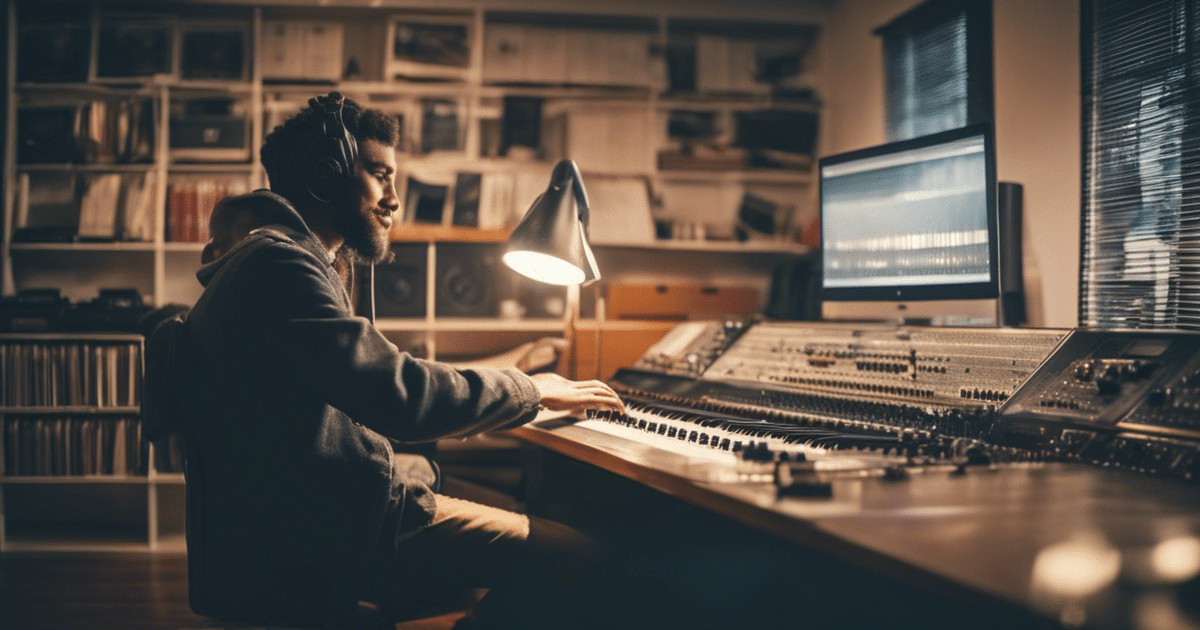Estimated reading time: 7 minutes
Introduction: Understanding the Importance of Mechanical Licenses
As a musician, music producer, or remixer, you’ve likely heard the term “mechanical license” thrown around in the industry. But what exactly is it, and why is it so crucial for your career? Whether you’re planning to release a cover song, distribute your music on digital platforms, or produce physical copies of your tracks, understanding how to get a mechanical license is essential.
In this comprehensive guide, we’ll dive deep into the world of mechanical licensing, exploring its significance in the music industry, the steps to obtain one, and how it impacts your rights and royalties. So, let’s embark on this journey to demystify the process and empower you with the knowledge you need to navigate the complex landscape of music licensing.
Table of contents
- Introduction: Understanding the Importance of Mechanical Licenses
- What is a Mechanical License?
- The Step-by-Step Process: How to Get a Mechanical License
- Digital Platforms and Mechanical Licensing
- Common Pitfalls and How to Avoid Them
- Mechanical Licensing for Remixers and Producers
- The Future of Mechanical Licensing
- Video: How to Get a Mechanical License and LEGALLY release Cover Songs To Spotify, Apple Music, etc!
- Conclusion: Empowering Your Music Career Through Proper Licensing
- FAQs
What is a Mechanical License?
Before we delve into the how-to’s, let’s first understand what a mechanical license actually is.
Definition and Purpose
A mechanical license is a legal agreement that grants permission to reproduce and distribute copyrighted musical compositions in audio-only formats. This includes physical copies like CDs and vinyl records, as well as digital downloads and interactive audio streams on platforms like Apple Music and Amazon Music.
Why Do You Need a Mechanical License?
If you’re planning to record and release a cover song, or if you’re a digital service provider wanting to offer copyrighted music, you need a mechanical license. This license ensures that the original songwriters and publishers receive royalties for the use of their compositions.
“A mechanical license is your ticket to legally reproducing and distributing copyrighted music, ensuring fair compensation for the original creators.”
The Step-by-Step Process: How to Get a Mechanical License
Now that we understand the basics, let’s walk through the process of obtaining a mechanical license.
Step 1: Identify the Copyright Holder
- Research the original songwriter and publisher
- Check with performing rights organizations (PROs) like ASCAP, BMI, or SESAC
- Look up the song in the U.S. Copyright Office database
Step 2: Determine the Type of License You Need
Depending on your intended use, you might need:
- A mechanical license for audio-only formats
- A synchronization license for visual content
- Both licenses if you’re using the music in a video
Step 3: Calculate the Royalty Rate
The U.S. Copyright Office sets a statutory royalty rate for mechanical licenses. As of 2023, this rate is 9.1 cents per song per unit sold or 1.75 cents per minute of playing time, whichever is greater.
Step 4: Choose a Licensing Method
There are several ways to obtain a mechanical license:
- Direct Licensing: Contact the copyright holder directly
- Harry Fox Agency (HFA): Use their Songfile service for easy online licensing
- Music Reports: Another popular platform for obtaining licenses
- Compulsory License: If you can’t reach the copyright holder, you can file a Notice of Intention (NOI) with the U.S. Copyright Office
Step 5: Submit Your Application
Provide the following information:
- Your contact details
- The song title and original artist
- How you plan to use the song (e.g., digital download, CD, streaming)
- The number of copies you intend to make or distribute
Step 6: Pay the Licensing Fee
Fees vary depending on the licensing method and the number of copies. Be prepared to pay upfront or agree to a payment schedule.
Step 7: Maintain Accurate Records
Keep track of all your sales and distributions to ensure proper royalty payments to the copyright holders.

Digital Platforms and Mechanical Licensing
In today’s music industry, digital platforms play a significant role in music distribution. Here’s what you need to know about mechanical licensing in the digital realm:
Streaming Services
Most major streaming platforms like Spotify, Apple Music, and Amazon Music handle mechanical licensing on behalf of the artists who upload music to their platforms. However, it’s crucial to ensure that you have the right to distribute any covers or remixes you upload.
Digital Downloads
If you’re selling your music as digital downloads through platforms like Bandcamp or your own website, you’re responsible for obtaining the necessary mechanical licenses.
Common Pitfalls and How to Avoid Them
As you navigate the world of mechanical licensing, be aware of these potential issues:
- Failing to obtain a license: This can lead to copyright infringement claims and legal troubles.
- Misunderstanding license types: Remember, a mechanical license doesn’t cover synchronization with visual content.
- Incorrect royalty calculations: Always double-check your math to ensure fair payments.
- Neglecting to report sales: Regular reporting is crucial for maintaining good relationships with copyright holders.

Mechanical Licensing for Remixers and Producers
If you’re a remixer or producer, mechanical licensing takes on additional dimensions:
Remixes
When creating a remix, you typically need both a mechanical license and permission from the master recording owner. This is because remixes often use portions of the original recording.
Sampling
If you’re incorporating samples from other songs into your work, you’ll need to obtain separate licenses for each sample used.
The Future of Mechanical Licensing
The music industry is constantly evolving, and so are licensing practices. Stay informed about these emerging trends:
- Blockchain technology: This could streamline the licensing process and ensure more accurate royalty distributions.
- AI-powered licensing: Artificial intelligence might soon play a role in automating parts of the licensing process.
- Global licensing standards: As the industry becomes more interconnected, we may see more standardized licensing practices across different countries.
Video: How to Get a Mechanical License and LEGALLY release Cover Songs To Spotify, Apple Music, etc!
Conclusion: Empowering Your Music Career Through Proper Licensing
Understanding how to get a mechanical license is a crucial skill for any musician, producer, or remixer in today’s music industry. By following the steps outlined in this guide and staying informed about licensing requirements, you’re not only protecting yourself legally but also ensuring that original creators receive fair compensation for their work.
Remember, while the process may seem daunting at first, it becomes easier with practice. Don’t hesitate to seek legal advice if you’re unsure about any aspect of licensing. By prioritizing proper licensing, you’re contributing to a more transparent and fair music ecosystem.
As you continue your musical journey, keep this guide handy and stay updated on any changes in copyright law or licensing practices. Your commitment to ethical and legal music production will serve you well as you build your career in this dynamic and exciting industry.
“Proper licensing is not just a legal requirement—it’s a testament to your professionalism and respect for fellow creators in the music community.”
Related Posts
FAQs
A mechanical license allows you to legally reproduce and distribute copyrighted music. It is necessary when covering songs, selling digital downloads, or producing physical copies of tracks. It ensures original songwriters receive royalties, protecting both creators and distributors from legal issues.
To obtain a mechanical license, identify the copyright holder, calculate royalties, and apply through services like the Harry Fox Agency or directly contact the rights holder. Submit the necessary details about the song, its usage, and the number of copies, then pay the licensing fee.
Yes, most major streaming platforms like Spotify, Apple Music, and Amazon Music manage mechanical licensing for uploaded music. However, for covers or remixes, you must ensure you have obtained the correct licenses before distributing your tracks on these platforms.
Common pitfalls include failing to obtain a license, misunderstanding the license type, miscalculating royalties, and neglecting to report sales. These issues can lead to legal trouble or strained relationships with copyright holders, so it’s important to stay informed and organized.
A mechanical license covers audio-only formats like digital downloads or CDs, while a synchronization license is required when pairing music with visual content (e.g., films or commercials). If you plan to use music in videos, you’ll need both licenses.
